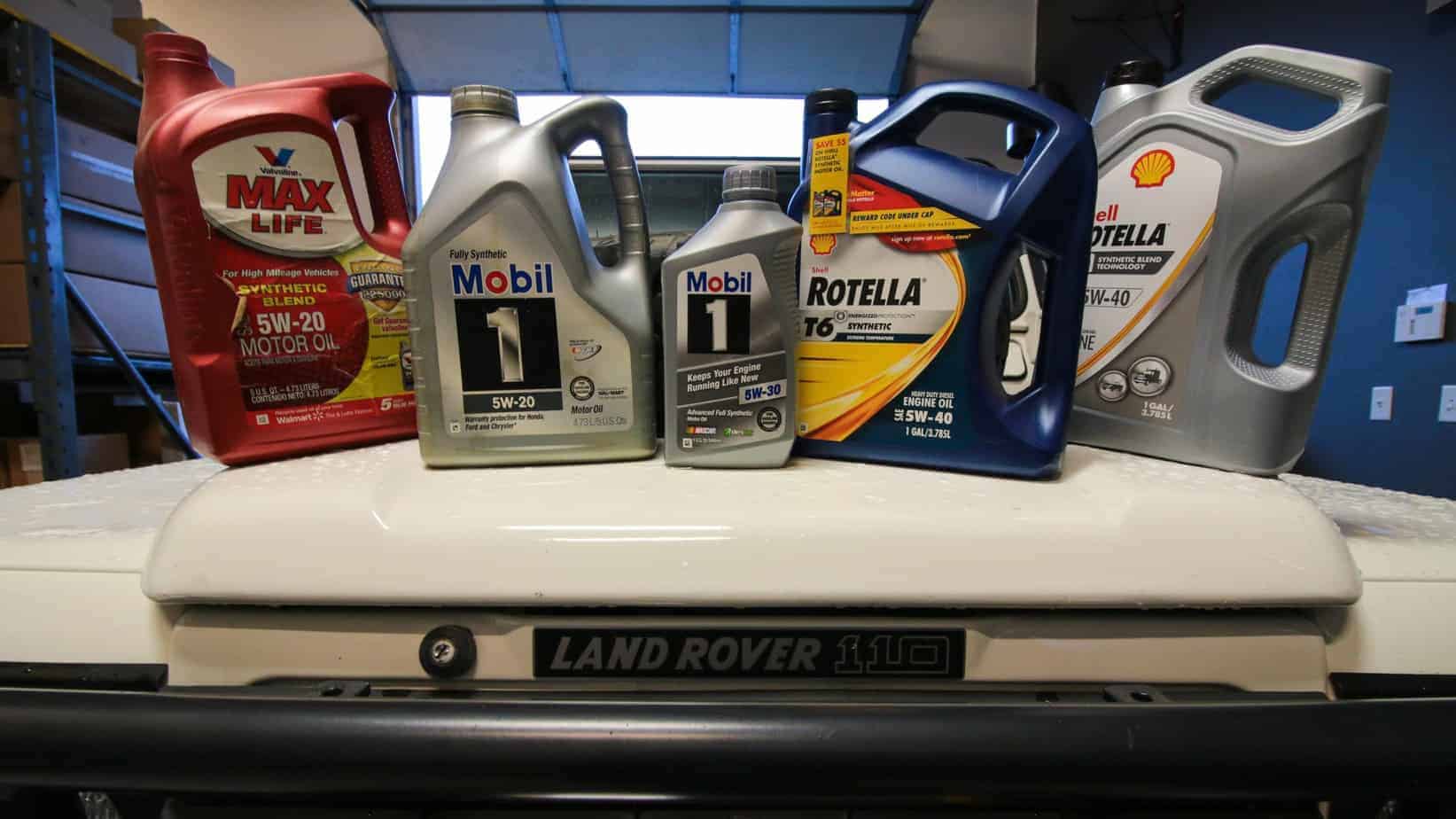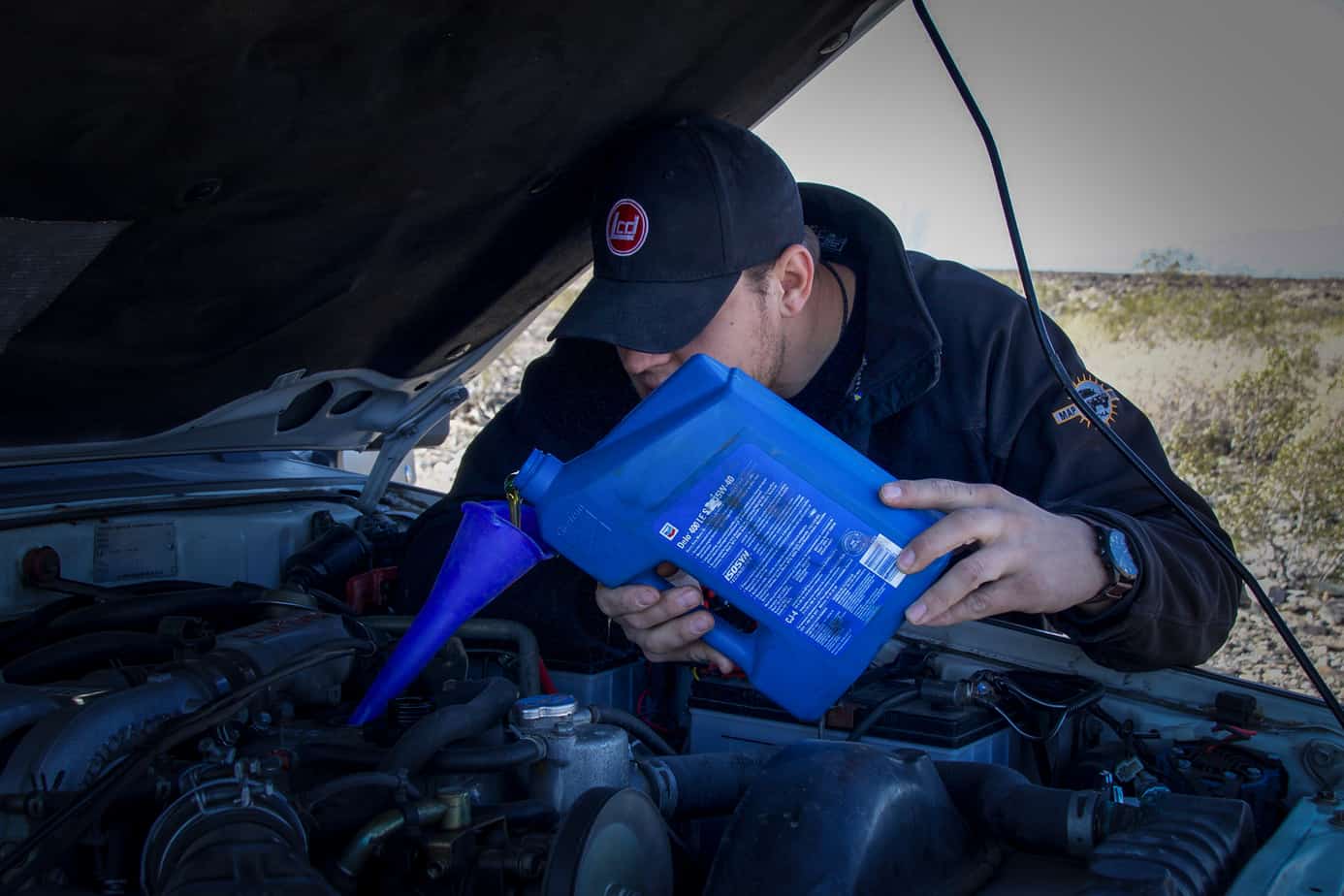After fighting muddy trails and sandy washes for three days, you roll into your planned supply stop on fumes. It’s a speck of a town, but the neon glow from the lone petrol station is a comforting sight. As the fuel starts to flow you begrudgingly remind yourself to be responsible and check the oil. The hood comes up and the dipstick shows… uh-oh. It looks like days of low range and spinning tires have taken their toll, your oil supply is dangerously low. Trouble is, this tiny station only carries two types of oil, and you have been running something entirely different. What do you do? Can you mix these different brands? What about oils with a different viscosity? Will it harm the motor to mix a synthetic with a traditional?
If you have no idea, you’re not alone. These same questions are posted all of over the internet, and for each reasonable answer ten “experts” claim they saw someone’s fuel economy double, or experienced a total engine failure as a result of mixing these simple lubricants. While such discussions are entertaining to say the least, they rarely shed much light on the issue, so we’ve decided to address it head on with this travel tip.
Myth: Mixing motor oils will damage your engine
Despite their differences, the basic purpose of these lubricants is the same. So if you find yourself running low in the field, mixing a few brands and viscosities to keep your levels up is an easy choice when compared to the risk of overheating, or worse, engine failure. Even so, it’s not an ideal situation and you should try to run a single oil whenever possible. That’s because every manufacturer uses a different set of additives, and when combined with other products they become diluted and therefor less effective. A combination of various lubricants will keep the motor running, but the life of the oil may be shortened, or the engine performance may decrease.
Myth: You can’t mix synthetic and traditional oils
Although synthetic oils, synthetic blends, and traditional motor oils are quite different, they can still be combined when needed. The resulting concoction will be less effective than the original synthetic, but will still provide the critical functions expected from a motor oil. As we mentioned above though, it should be considered a temporary fix. Be sure to switch back to a single viscosity and brand given the chance.
Fact: Mixing gear oils and non motor oils can damage your engine
Like diesel and petrol fuels, motor oils are too different to mix with gear oils and other fluids. As a general rule all engine oils should be able to work together, but adding anything else is likely to damage or even ruin the motor. Always try to use a lubricant as close to the type and viscosity of your recommended oil. For more information, you can read Towing Less oil filters review.




